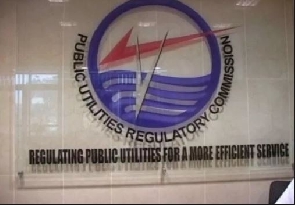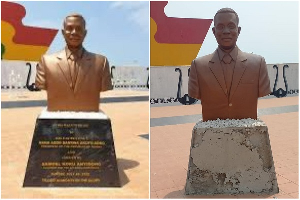The Ghana National Chamber of Commerce and Industry (GNCCI) has called for government’s intervention to stop implementation of new utility tariffs.
It said the new electricity and water tariffs announced by the Public Utilities Regulatory Commission (PURC) last month and effective January 1, are too high and could potentially worsen plight of businesses.
“Businesses that are into production are collapsing, others are also moving their operations from the country; our concern is that the price hike is so much and we cannot bear it,” GNCCI’s President, Clement Osei-Amoako said in Accra after a meeting with the PURC.
The new tariffs took effect February 1, 2023. End-user electricity tariff has gone up up by 29.96 percent while water increased by 8.3 percent.
However, Mr. Osei-Amoako emphasised that the new tariffs had come at a time when the business community was looking at how best to reduce rising cost of production on the back of ongoing economic crisis, hence implementation of the upward adjustments, particularly in electricity tariffs, should be suspended.
“As a chamber we will not wait for all our businesses to collapse before we come back and demand that the tariffs are reduced,” he added.
He explained that the chamber had bought into the government’s decision on import substitution and was subsequently taking steps to boost production and that the tariff decision is a major setback.
“With this increase in tariff, if we are not careful, we will defeat that purpose of import substitution because the cost of production is very high in a manner that businesses cannot break-even anymore and so we need to borrow to survive,” he lamented.
Too little too late
Reacting to GNCCI’s appeal, Executive Secretary of PURC, Dr. Ishmael Ackah, stated that the new tariffs had already been gazetted since January 16, this year and for that reason could not be reviewed.
“The decision on the tariff has been gazetted and so for now nothing can be done on the part of PURC. However, there will be other quarterly adjustments and so we will establish the protocols for engagement,” he noted.
He explained that the new tariffs was supposed to be announced November last year to take effect on December 1, 2022 but was put back because of unfavorable exchange rate at the time.
With the exchange rate being the major driver for the quarterly adjustment, he said the rate for December had risen above 40 percent: “So, we delayed and came out on January 15, this year with an upward review of electricity and water tariffs for the first quarter of 2023.
Meanwhile, following the meeting, the Executive Secretary revealed that the two bodies agreed to regular engagements before future tariffs decisions.
Business News of Thursday, 2 February 2023
Source: thebftonline.com

















